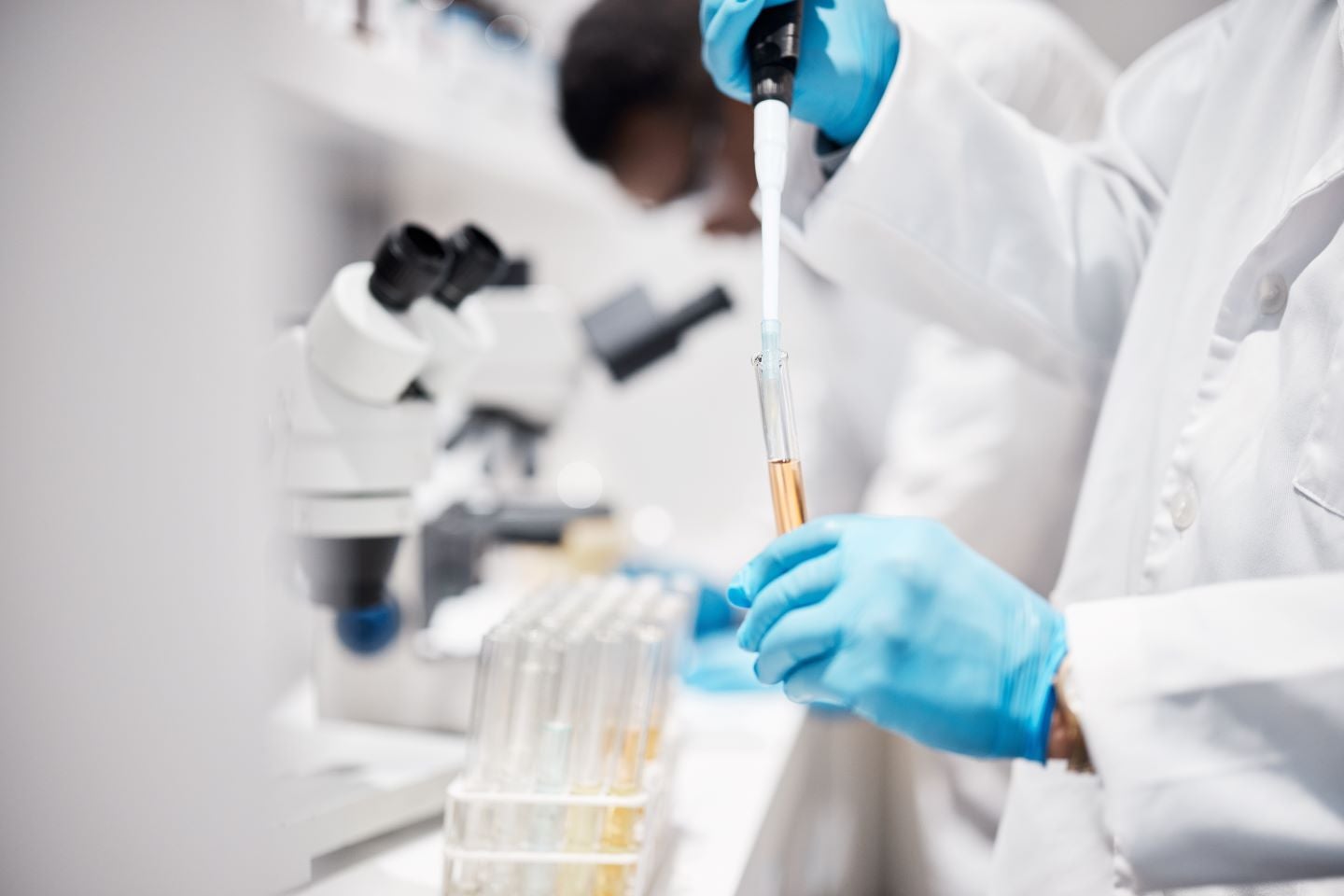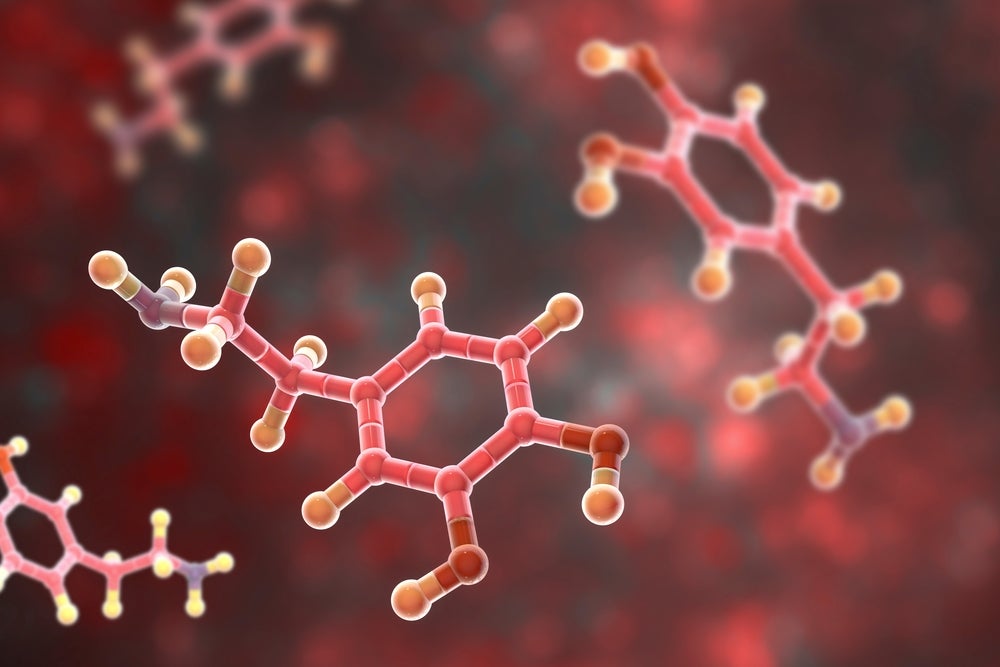Gut Microbiota Pathways Influence CSAG1 in Chondrosarcoma
In a groundbreaking advance illuminating the intricate connections between the gut microbiome and cancer biology, researchers have uncovered compelling evidence that metabolic pathways within gut bacteria may causally influence gene expression linked to chondrosarcoma, a rare but aggressive bone cancer. Published recently in BMC Cancer, this pioneering study employs high-level genomic analysis techniques known as […]


In a groundbreaking advance illuminating the intricate connections between the gut microbiome and cancer biology, researchers have uncovered compelling evidence that metabolic pathways within gut bacteria may causally influence gene expression linked to chondrosarcoma, a rare but aggressive bone cancer. Published recently in BMC Cancer, this pioneering study employs high-level genomic analysis techniques known as Mendelian randomization to unravel the previously elusive mechanistic pathways underlying chondrosarcoma development, spotlighting the role of the gut microbiota’s metabolic activity.
Emerging research over the past decade has increasingly highlighted the gut microbiome as a critical player in human health and disease, extending well beyond its traditional role in digestion. However, the causal links between specific microbial metabolic processes and cancer-specific gene expression have remained largely speculative until now. This new study delivers a rigorous genetic approach to ascertain which bacterial metabolic pathways directly influence the expression of the chondrosarcoma associated gene 1 (CSAG1), a gene implicated in the pathology of this malignant tumor.
The investigation harnessed the power of two-sample bidirectional and multivariate Mendelian randomization (MR) analyses, using the largest genome-wide association studies (GWAS) dataset currently available for both gut microbiota metabolic pathways and CSAG1 expression metrics. Mendelian randomization, a technique increasingly valued for its ability to infer causality in epidemiology and molecular biology, uses genetic variants as instrumental variables, thereby mitigating confounding factors that typically obscure observational studies.
Initial univariate MR analysis revealed several gut microbial metabolic pathways that have a statistically significant causal influence on CSAG1 expression. Notably, pathways such as tetrapyrrole biosynthesis from glutamate—a key route in the creation of heme and related compounds—alongside menaquinol 6 biosynthesis, a process linked to vitamin K2 production, were found to robustly regulate CSAG1 activity. In addition, glycogen degradation II, 8-amino-7-oxononanoate biosynthesis (involved in biotin synthesis), taxadiene biosynthesis, glycolysis, and tRNA charging pathways also surfaced as significant causal contributors.
The complexity of microbial-host interactions warranted deeper scrutiny using multivariate MR analysis, which adjusts for interdependent effects between these pathways. This refined method confirmed that tetrapyrrole biosynthesis, menaquinol 6 biosynthesis, glycogen degradation II, glycolysis, and tRNA charging maintained a strong, independent causal effect on CSAG1 gene expression. Such findings underscore the notion that multiple metabolic routes within gut microbiota converge to modulate genes associated with chondrosarcoma progression.
Intriguingly, reverse MR analyses were conducted to explore potential feedback loops—whether CSAG1 expression could, in turn, influence gut microbiota metabolic pathways. The results decisively indicated no significant reverse causality, reinforcing the unidirectional effect of microbial metabolism on cancer-related gene expression. This clarification adds weight to the argument that microbial metabolic shifts may actively precipitate molecular changes leading to tumorigenesis rather than being a secondary effect of cancer progression.
These revelations propel our understanding beyond correlative associations, enabling the field to start disentangling a causal mechanistic narrative linking gut microbiota metabolism to cancer biology. The pathways implicated have well-recognized biochemical roles, such as tetrapyrrole metabolism’s engagement with heme synthesis, which is vital for cellular respiration and oxidative stress regulation, both processes heavily involved in cancer cell metabolism and growth.
The study also opens avenues for therapeutic innovation. Modulation of the gut microbiome’s metabolic capacities—whether through diet, probiotics, or targeted drugs—may represent a novel strategy to indirectly influence cancer gene expression profiles, potentially impacting tumor growth or susceptibility. By identifying specific metabolic pathways as drivers, interventions can be more precise, avoiding broad-spectrum microbiota alterations that currently characterize many microbiome-based therapies.
Moreover, the findings emphasize the importance of holistic approaches in oncology research that integrate microbiology, genetics, and metabolic biochemistry. The multidisciplinary application of Mendelian randomization illustrates the cutting-edge in investigative techniques, combining statistical genetics with molecular biology, a hybrid approach that is likely to become standard in dissecting complex disease etiologies.
Given the scarcity of effective treatments against chondrosarcoma, which often demonstrates resistance to conventional chemotherapy and radiotherapy, these insights hold translational potential. Understanding how gut microbiota influences gene expression in tumors could lead to biomarkers for early diagnosis or prognosis, facilitating more timely and individualized patient management.
It is worth noting that while Mendelian randomization provides strong evidence for causality, experimental validation through functional studies will be crucial for confirming these pathways’ roles mechanistically. The integration of microbiome analysis with tumor biopsies and gene expression studies in clinical cohorts stands as a natural next step.
This research also hints at the broader paradigm that gut microbiota are not passive inhabitants but active metabolic partners influencing distant tissues and disease states, extending the significance of microbiome research well into oncology.
In summary, this landmark study redefines how we conceptualize the gut microbiota’s role in cancer by establishing a causal framework linking microbial metabolic activities to the expression of oncogenes in chondrosarcoma. It not only advances the scientific understanding of tumor biology but heralds an era where microbiome-informed therapeutic approaches may transform outcomes for bone cancer patients, something previously thought to be beyond reach.
As the scientific community digests these revelations, future exploration into other cancer types and microbial metabolic pathways is anticipated, potentially revealing a universal principle of microbiome-cancer interplay governed by microbial metabolites’ influence on host gene regulation.
The convergence of genetics, microbiology, and oncology in this study exemplifies modern biomedical research’s power, cementing the gut microbiome as a frontier for novel diagnostic and therapeutic strategies in cancer.
Subject of Research: Causal relationships between gut microbiota metabolic pathways and gene expression in chondrosarcoma.
Article Title: Causal effect of gut microbiota metabolic pathways on CSAG1 expression in chondrosarcoma: a mendelian randomization analysis.
Article References:
Liu, X., Yang, S. & Liu, L. Causal effect of gut microbiota metabolic pathways on CSAG1 expression in chondrosarcoma: a mendelian randomization analysis. BMC Cancer 25, 852 (2025). https://doi.org/10.1186/s12885-025-14281-y
Image Credits: Scienmag.com
DOI: https://doi.org/10.1186/s12885-025-14281-y
Tags: cancer pathology and microbiomechondrosarcoma gene expressionCSAG1 and gut microbiomeemerging research on gut healthgenetic links between microbiota and cancergenomic analysis of chondrosarcomagut bacteria influence on tumorsgut microbiota and cancerhigh-level genomic analysis techniquesMendelian randomization in cancer researchmetabolic activity of gut bacteriamicrobial metabolic pathways and health
What's Your Reaction?


































